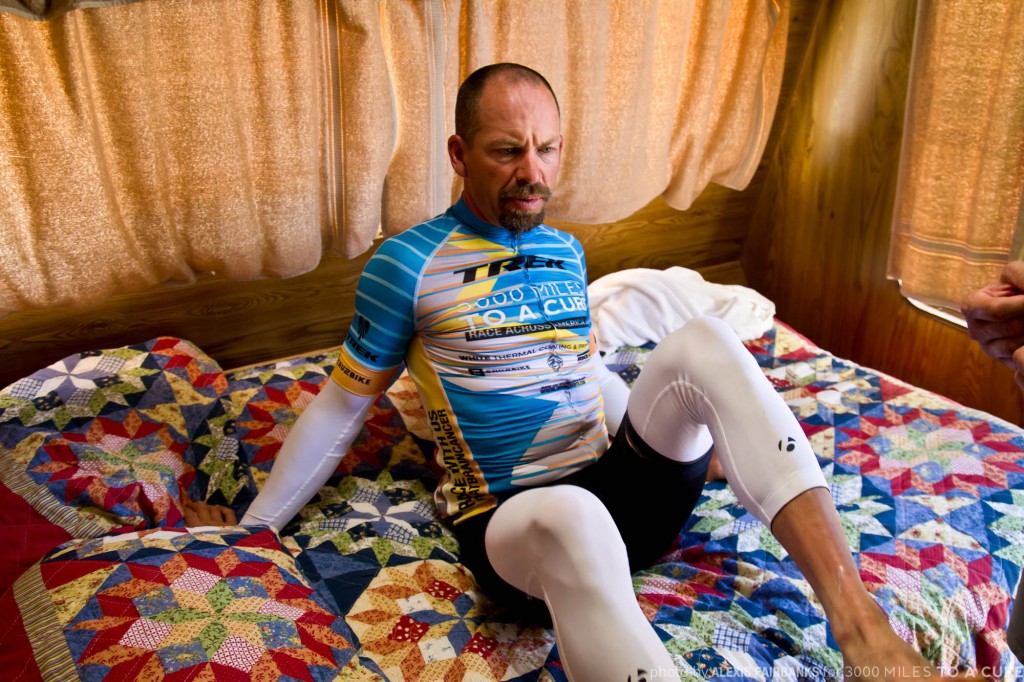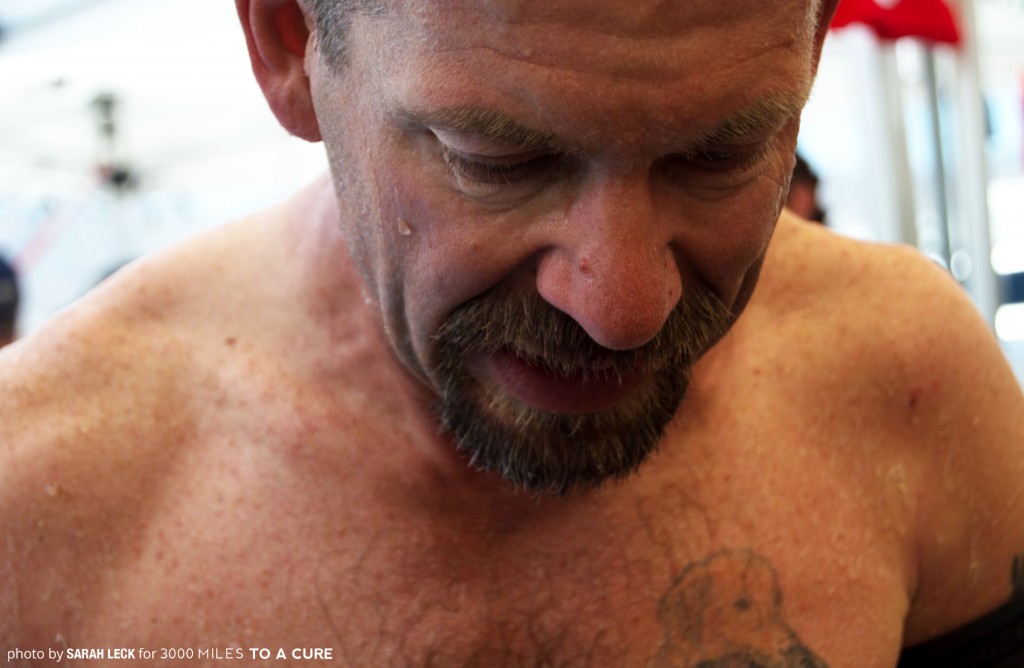She slumped face-first onto her backpack, which rested on the hard plastic latticework of a pier-side picnic table. Her eyelids oscillated–rapidly at first, and then, gradually, more slowly. Soon the movement ceased.
Given the time of day (mid-afternoon) and her proximity to the ocean–one might guess that she’d been overcome by beach-day languor. But her sagging mouth and bloodshot eyes suggested otherwise: She looked drained. Exhausted. Beat.
I’ve thought of her, that tired woman I saw by the Oceanside, CA pier, often as I’ve watched Rob White attempt to cycle almost non-stop across the United States. Now in his 4th day of cycling, he’s only taken 3 significant sleep breaks, each one lasting about an hour and a half.
Can you visualize what that sort of sleep-deprivation feels like?
Try for a minute. It might be easy for you if you’re tired while reading this. But it might not be if you’re well rested. After all, one of humanity’s greatest blessings (and one of our greatest curses) is our ability to forget all but the slightest imprint of even the greatest pleasure and pain.
But try, anyway.
First, you might imagine or remember, sleep-deprivation brings irritability. Everyone and everything seems mean, petty, and intentionally designed to harm and thwart you. After that comes pure exhaustion–the overwhelming desire to stop whatever you are doing and shut your eyes. The desire to lie down and rest. Here, you might even begin to wander into the foggy beginning of a dream–but you shake that off by an act of will–for you must stay awake. Next, blessedly, the tide of exhaustion begins to go out for a while. Now, you start to feel punch-drunk, maybe even giddy, but you notice that others don’t seem to be responding to your speech in the way you expected. It’s as if they are not paying attention to what you are saying. Confusion becomes an issue. The simplest mental calculation requires heroic effort. Finally, and most jarringly, your emotions seem primed to boil to the surface rapidly. It’s as if your civilized veneer has been flayed away–no mental wall remains to contain expressions of anger, sadness, and love.
Sleep-deprivation exposes you to the harsh light of the world’s judgment, naked.
“What’s the point of this exercise, Will?” you might ask. “After all, Rob White chose to do this race–I wish him the best, but I don’t have time to worry about the sleepless suffering of a masochistic cyclist.”
In my darker moments, I’ll admit that I’ve thought along those lines, too. I like Rob. He’s a good man, and I don’t like to see him hurt himself–I don’t like to see him expose himself–for the sake of a stupid bike race.
“Stop, Rob, quit!” I’ll think. “Sleep! Rest! Enjoy food and fellowship–all the things that make life pleasant and decent!”
But I’m wrong to think that way. For Rob doesn’t race for himself. He races for those with brain cancer. He endures suffering for a just cause. He rides through pain and exhaustion to raise money for brain cancer research. Because those with malignant brain tumors cannot opt out of their disease. They can’t simply quit their race, their portion of suffering. Not while tumors crush and choke their brains.
Many do find rest, at least. But too many do so, around 15,000 brain cancer patients a year in the U.S, in Frost’s snowy woods. In death.
I know, I know, you’re thinking: “Cool it, Will! I’ve just finished a long work-day!” And I get it. It all sounds a little melodramatic.
And maybe you’re sick of hearing this sort of plea for donations. After all, there are all sorts of good causes out there. Charities devoted to curing different horrible diseases. Charities dedicated to ameliorating other species of human suffering.
So why give your money, emotion, and time to 3000 Miles to a Cure, rather than those other charities?
I don’t know–in fact, I encourage you to give to those charities, too.
What I do know, though, is that brain cancer impacts the seat of the human soul–if that exists–altering personality and sapping motivation. And I know that there are exciting research developments–both on the horizon and right now–in the field of brain cancer research. And I know that today is the one year anniversary of my aunt’s death from brain cancer. And I know that I miss her.
read more

